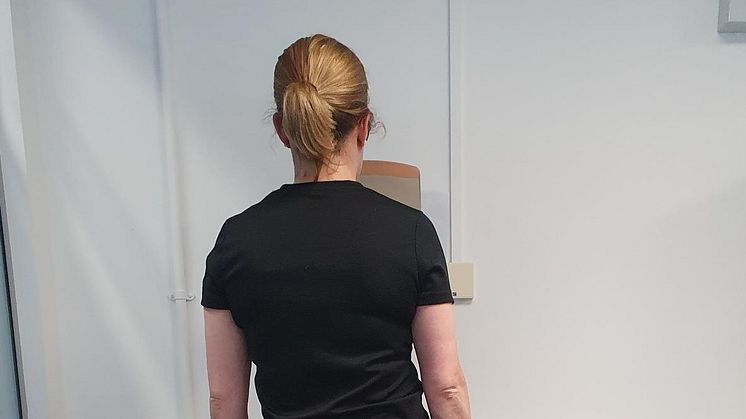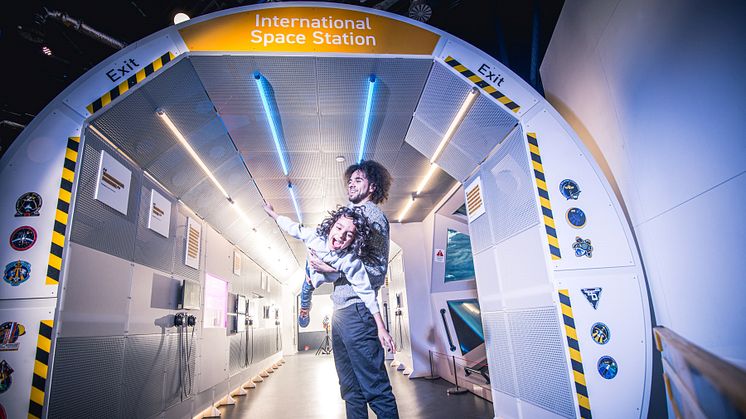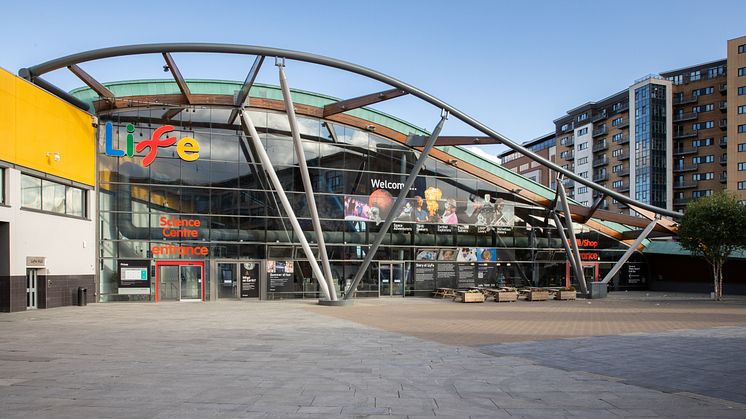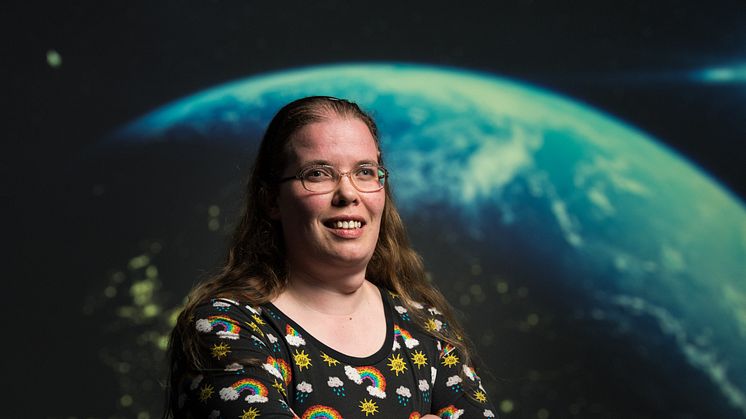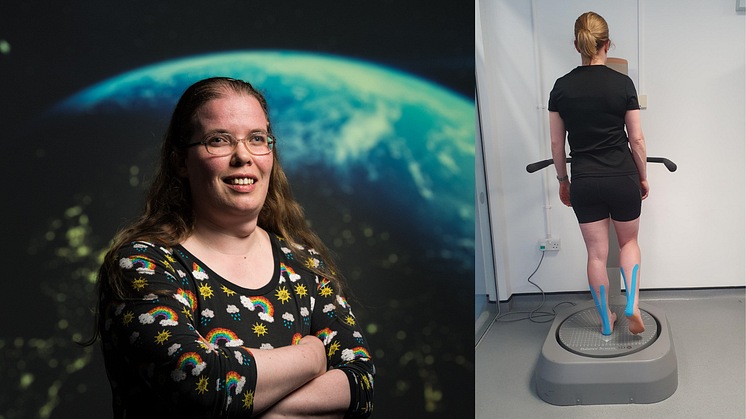
Press release -
Visitors to Life Science Centre to help with vital space research
Visitors to Newcastle's Life Science Centre can take part in a scientific study which could help astronauts on the next mission to the Moon.
On the NASA led Moon exploration programme Artemis, astronauts will spend around a month in space before touching down on the Moon, causing their muscles to deteriorate and making balancing on the Moon’s surface a real challenge.
Dr Kirsty Lindsay, Assistant Professor in Astronaut Rehabilitation Sciences at Northumbria University, believes that by applying Kinesiology tape, or K-tape, to astronauts’ ankles, it could provide vital additional balance when navigating the unfamiliar lunar environment.
Dr Lindsay and the Astronaut Rehabilitation Sciences team at Northumbria University will be visiting the science centre between Friday 5 July and Monday 8 July.
Using a computerised platform, designed to mimic the challenging conditions on the Moon, adults can test the effect of K-tape, commonly used by elite athletes to provide muscular support, on a range of balancing challenges.
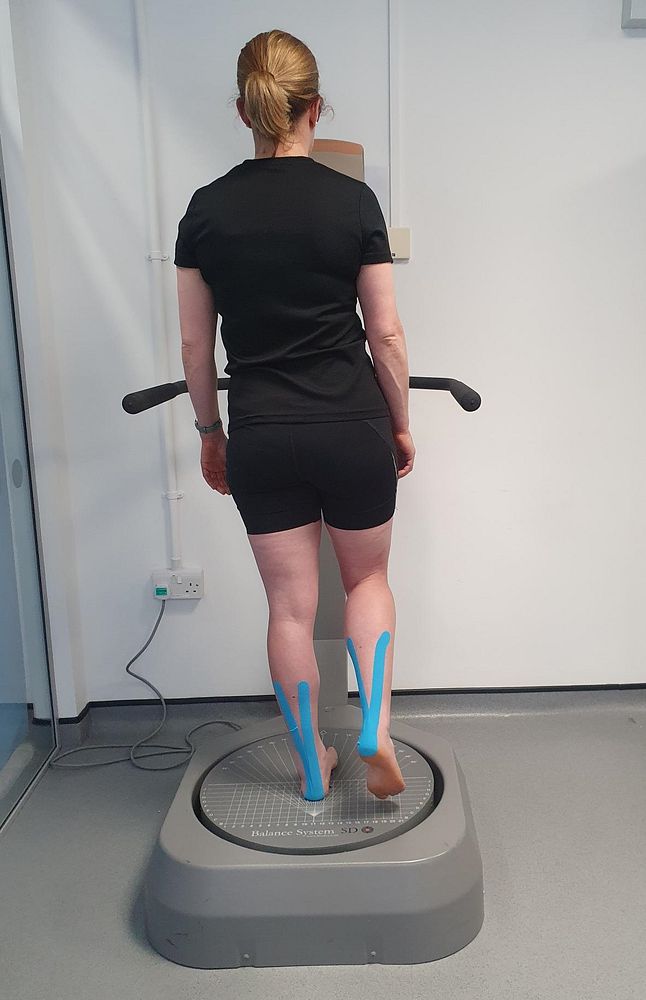
Dr Lindsay said: “Sometimes we need to think about a challenge from a new perspective. Long-term habitation on the Moon means power could be restricted, so a simple, low-tech solution is needed.
“K-tape can be applied easily by anyone, in any environment, plus it is relatively low-cost and won’t cause any discomfort when worn under a space suit.
“It will be brilliant to spend time at Life Science Centre and gather evidence of the impact the tape has on balance.”
The study will take place in Life’s Space Zone, which features a range of space-related exhibitions, including a replica of the International Space Station, and the results will be shared with the European Space Agency as part of a bid to support further research.
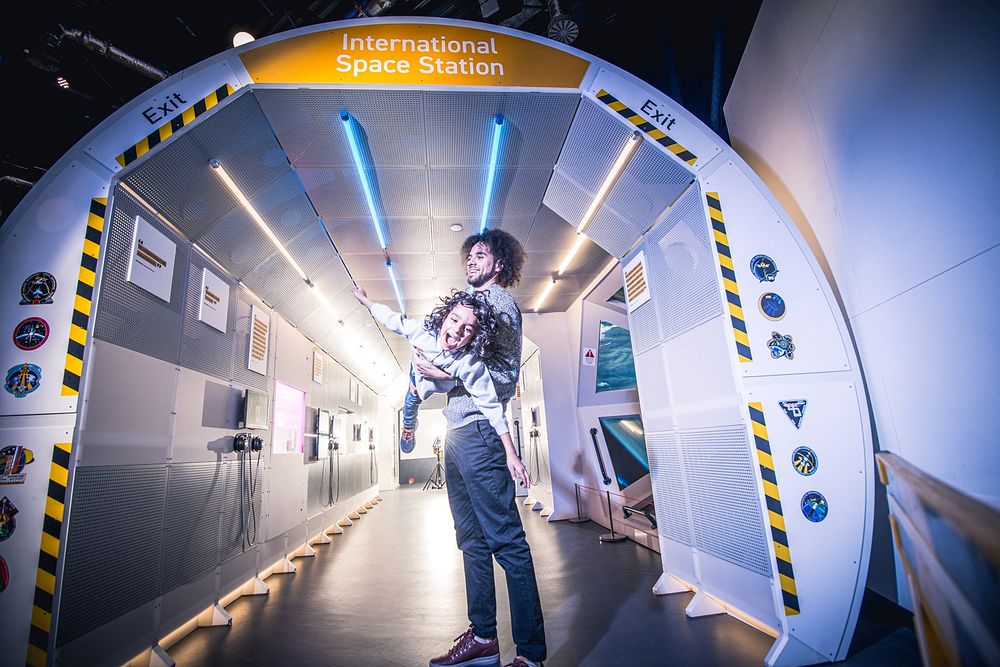
Life Chief Executive Linda Conlon said: “This experiment provides an exciting opportunity for visitors to contribute directly to what astronauts could wear on their next mission to the Moon.
“Collaborating with academics in this way means that our visitors can see how innovative research has real-world applications.
“We have the most extensive space engagement programme in the North and have a long-standing partnership with Northumbria University, working together on events like these to put the spotlight on today’s space industry and highlighting the breadth of career opportunities it offers.”
Northumbria University is powering the next generation of space innovation, attracting world-leading space academics across a multitude of specialist areas, from satellite communications to space law and policy.
Northumbria collaborates extensively with partners including UK Research and Innovation, the UK Space Agency, the UK Met Office, and over 40 other industrial partners.
Last year the University announced ambitious plans to develop a £50 million space skills, research and development centre, set to transform the UK space industry. The North East Space Skills and Technology centre (NESST) is expected to directly support the creation of over 350 jobs and inject over £260 million into the North East economy over the next 30 years, playing a critical role in the government’s levelling-up agenda and immediately becoming a catalyst for the wider development of the UK space sector in the North East region.
Life has been independently rated best in England for visitor experience.
Topics
Categories
UNIVERSITY OF THE YEAR 2022 (Times Higher Education Awards)
Northumbria is a research-intensive university that unlocks potential for all, changing lives regionally, nationally and internationally.
Two thirds of Northumbria's undergraduate students come from the North East region and go into employment in the region when they graduate, demonstrating Northumbria's significant contribution to social mobility and levelling up in the North East of England.
Find out more about us at www.northumbria.ac.uk
--- Please contact media.communications@northumbria.ac.uk with any media enquiries or interview requests ---









